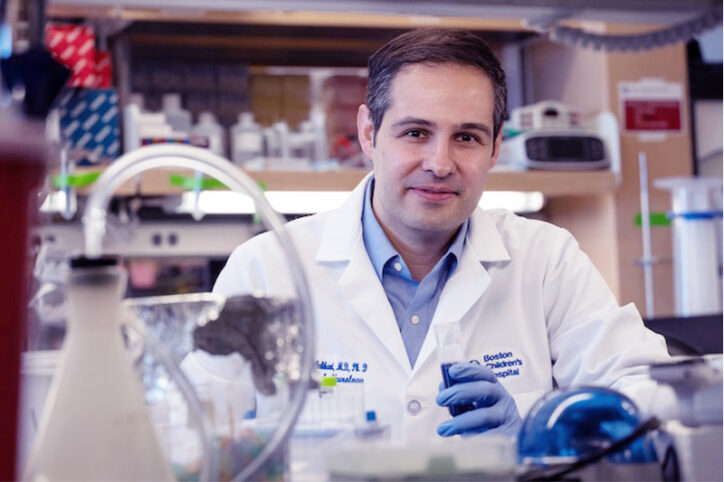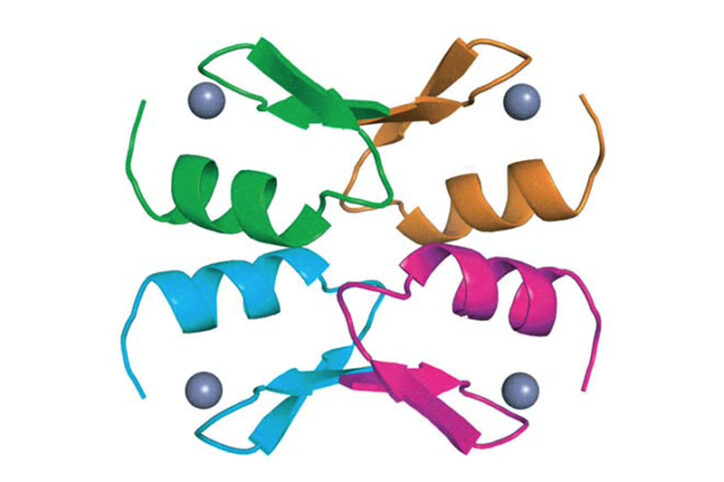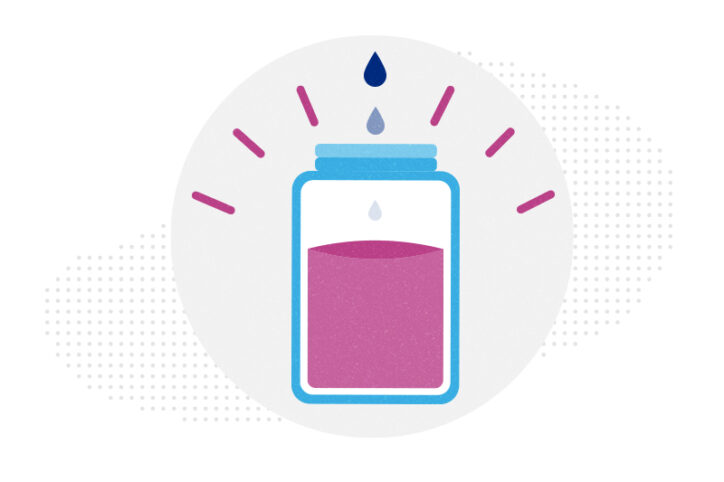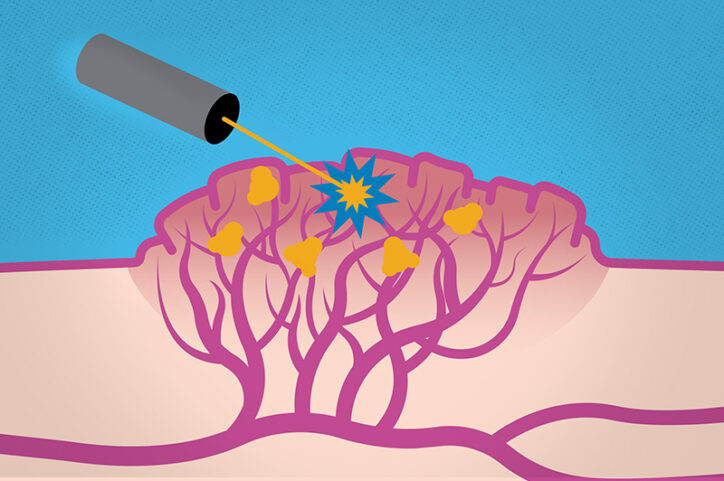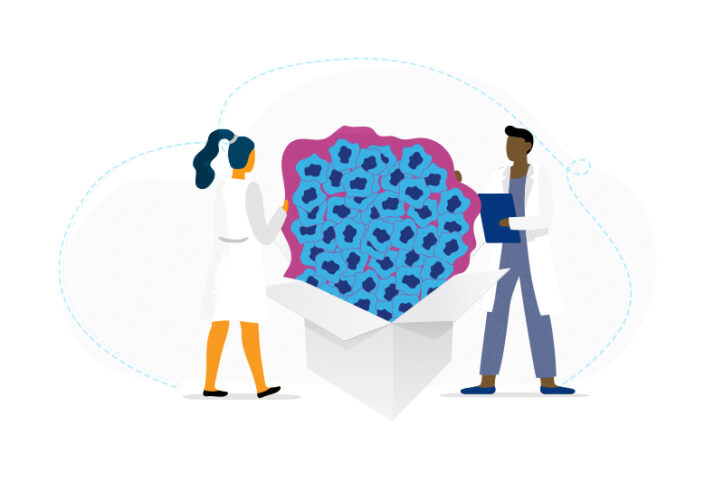Archive for drug development
The journey to a treatment for hereditary spastic paraplegia
In 2016, Darius Ebrahimi-Fakhari, MD, PhD, then a neurology fellow at Boston Children’s Hospital, met two little girls with spasticity and decreased muscle tone in their legs, which affected their walking. Both girls, Robbie Edwards and Molly Duffy, had been diagnosed with hereditary spastic paraplegia (HSP), which comprises a group of more than 80 genetic ... Read More about The journey to a treatment for hereditary spastic paraplegia
A new druggable cancer target: RNA-binding proteins on the cell surface
In 2021, research led by Ryan Flynn, MD, PhD, and his mentor, Nobel laureate Carolyn Bertozzi, PhD, opened a new chapter in biology, characterizing a new kind of player on the cell surface: glycoRNAs. Extending this discovery recently in Cell, Flynn and colleagues showed that glycoRNAs form highly organized clusters with RNA-binding proteins on the ... Read More about A new druggable cancer target: RNA-binding proteins on the cell surface
Could a pill treat sickle cell disease?
The new gene therapies for sickle cell disease — including the gene-editing treatment Casgevy, based on research at Boston Children’s Hospital — have been game-changing for the patients who have received them. But Stuart Orkin, MD, the Boston Children’s hematologist whose work led the way to Casgevy, wants to go even further. “The editing therapy ... Read More about Could a pill treat sickle cell disease?
Tagged: drug development, hematology, sickle cell disease
Injected microbubbles could be a safe way to deliver emergency oxygen
For years, researchers and clinicians have been trying to find a way to rapidly deliver oxygen to patients when traditional means of oxygenation are difficult or ineffective during critical moments of cardiac or respiratory arrest. Sometimes, hypoxemia caused by airway obstruction or lung disease can be so severe that methods to boost low-oxygen levels (including ... Read More about Injected microbubbles could be a safe way to deliver emergency oxygen
From ‘hit to vial’: Discovery and optimization of a promising vaccine adjuvant
Many vaccines are only partially effective, have waning efficacy, or do not work well in the very young or the very old. For more than a decade, Ofer Levy, MD, PhD, and David Dowling, PhD, in the Precision Vaccines Program at Boston Children’s Hospital, have tried improving vaccines by adding compounds known as adjuvants to ... Read More about From ‘hit to vial’: Discovery and optimization of a promising vaccine adjuvant
Tagged: drug development, vaccines
Naloxone on demand: Shining a light to reverse opioid overdose
Overdose deaths from fentanyl and other opioids are at record highs in the U.S. Naloxone, if delivered soon after an overdose, is proven to be life-saving. It binds to the same brain receptors that opioids use, thereby blocking opioids’ effects. A naloxone nasal spray (Narcan) is now available over the counter, but there are still problems ... Read More about Naloxone on demand: Shining a light to reverse opioid overdose
Tagged: drug development, drug safety, opioids, substance abuse
Gold particles and light could melt venous malformations away
Venous malformations — tissues made up largely of abnormally shaped veins — are often difficult to treat, especially when located in sensitive areas like the eyes, face, and genitourinary organs. In the worst cases, the lesions are disfiguring and can crush or obstruct surrounding tissues, cause bleeding and clotting, interfere with breathing or vision, or ... Read More about Gold particles and light could melt venous malformations away
Tagged: drug development, nanotechnology, surgery, vascular anomalies
Nanobodies from alpacas could steer immune attacks on influenza
While conventional flu vaccines are designed to anticipate the influenza strains projected to dominate in the next flu season, they’re only partially effective. And while antiviral drugs are available to treat active flu cases, the body quickly clears them, requiring high, frequent doses. Coupling one existing flu drug with a special ingredient from alpacas, the ... Read More about Nanobodies from alpacas could steer immune attacks on influenza
Tagged: drug development, flu, immunotherapy, infectious diseases, vaccines
Playing the long game: An exciting discovery in telomere disease
Each time our cells divide, the protective caps that keep our chromosomes from fraying, called telomeres, lose a bit of their DNA. Telomeres shorten steadily as we age, but in certain medical conditions like dyskeratosis congenita, the process is accelerated. “Your telomeres determine your lifeline; how long they are determines how old your body is,” ... Read More about Playing the long game: An exciting discovery in telomere disease
Going out of the box to tackle pancreatic cancer
Pancreatic cancers are deadly and hard to treat, in part because they are so often detected at an advanced stage; overall five-year survival rates are about 11 percent. Two separate labs at Boston Children’s Hospital took out-of-the-box approaches to this difficult cancer, and both uncovered some very promising leads. Wiping out pancreatic tumors’ immune defense ... Read More about Going out of the box to tackle pancreatic cancer


